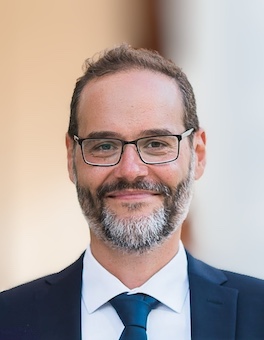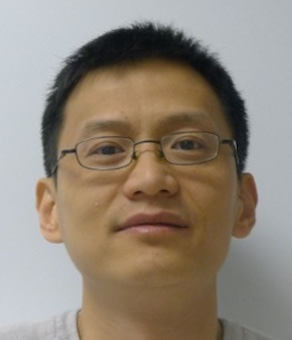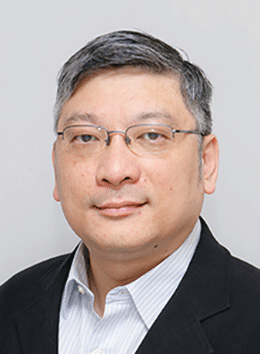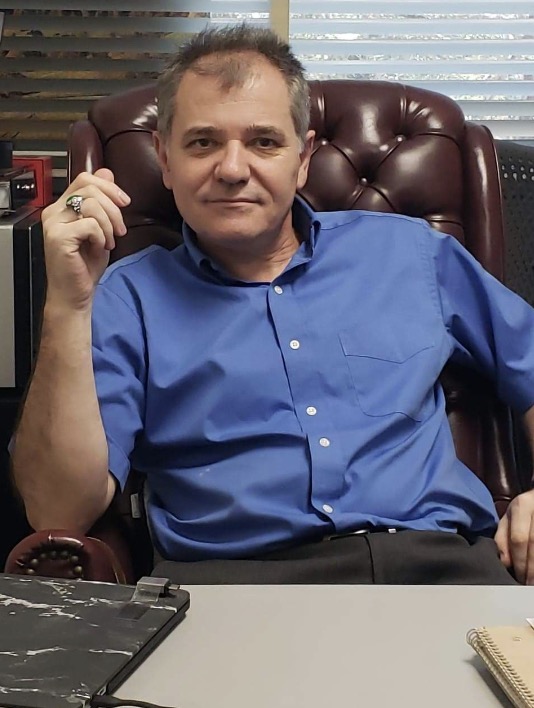Keynote Speakers

Pingzhi Fan (IEEE Fellow, IET/CIE/CIC Fellow, PhD, Chair Professor)
Pingzhi Fan (Fellow, IEEE) is currently presidential professor of
Southwest Jiaotong University (SWJTU), honorary dean of the
SWJTU-Leeds Joint School, and a visiting professor of Leeds
University, UK (1997-). He is a recipient of the UK ORS Award (1992),
the National Science Fund for Distinguished Young Scholars (1998,
NSFC), IEEE VT Society Jack Neubauer Memorial Award (2018), IEEE SP
Society SPL Best Paper Award (2018), IEEE/CIC ICCC2020 Best Paper
Award, IEEE WCSP2022 Best Paper Award, IEEE ICC2023 Best Paper Award,
and IEEE VT Society Best Magazine Paper Award (2023). He served as
chief scientist of the National 973 Plan Project (MoST) between
2012.1-2016.12. He also served as general chair or TPC chair of a
number of IEEE conferences, including VTC2016Spring, ITW2018,
IWSDA2022, PIMRC’2023, as well as ISIT’2026, etc. His research
interests include high mobility wireless communications, massive
random-access techniques, signal design & coding, etc. He is an IEEE
VTS Distinguished Speaker (2019-2025), a fellow of IEEE, IET, CIE and
CIC.
Homepage: https://faculty.swjtu.edu.cn/pzfan/
Title:
Recent Advances in Signal Design for Integrated Sensing &
Communications
Abstract
Integrated Sensing and Communication (ISAC) combines sensing and
communication systems to utilize wireless resources efficiently,
realize wide area environment sensing, and even to pursue mutual
benefits. It is anticipated that ISAC would be one of the key enablers
of 5G Advanced (5GA) and 6G wireless networks for supporting a variety
of emerging applications. Obviously, transmitting signal design plays
an essential role in ISAC systems. This talk shall provide recent
advances in ISAC signal designs, including coordinated signal design,
communications signal-based design, radar signal-based design, and
dedicated dual-function signal design. In particular, a new concept
called low ambiguity zone (LAZ) and some theoretical bounds, as well as
related LAZ signal designs, shall be presented.

Sihem Mesnager (Professor of Mathematics)
Sihem Mesnager received a PhD degree in Mathematics from the
University of Pierre et Marie Curie (Paris VI), Sorbonne University,
Paris, France, in 2002, and the Habilitation to Direct Theses (HDR) in
Mathematics from the University of Paris VIII, France, in 2012. She is
currently a professor of mathematics at the University of Paris VIII
(France) in the laboratory LAGA (Laboratory of Analysis, Geometry, and
Applications), University Sorbonne Paris Nord, and CNRS. She is also a
professor adjoint to Telecom Paris (France) in the INFERES department,
Telecom Paris, Institute Polytechnique of Paris. Her research
interests include discrete mathematics, symmetric cryptography, coding
theory, commutative algebra, and computational algebraic geometry. She
was awarded 2020 the first international George Boole Prize and
received several awards from 2014 to 2023 from the University of Paris
VIII (national evaluation). She is the Editor-in-Chief of the
International Journal of Information and Coding Theory (IJOCT),
published by Inderscience and co-editor-in-chief of the international
journal Advances in Mathematics of Communications (AMC), published by
AIMS. She was an Associate Editor for the international journal IEEE
Transactions on Information Theory (IEEE-IT) from Sept 2014 to Aug.
2021. Also, She serves on the editorial board of the international
journal Cryptography and Communications Discrete Structures and
Boolean Functions and Sequences (CCDS) published by SPRINGER, the
International Journal Finite Fields and their Applications (FFA)
Published by ELSEVIER, the international journal RAIRO ITA
(Theoretical Informatics and Applications), the International Journal
of Computer Mathematics (Published by Taylor Francis), and
International Journal of Applicable Algebra in Engineering,
Communication and Computing (AAECC)-Published by SPRINGER. She was a
program co-chair for several International Workshops, served on the
board of program committees of 45 international conferences and
workshops, and co-chaired/co-organized 12 international conferences
(notably, she was the main organiser of the international conference
in Finite Fields and their Applications Fq15 conference). She is
(co)-author of 220 articles, two books, and three chapters of books,
and has given more than 125 national and international conferences (36
invited talks). Since 2016, she has been president of the French
Chapter of IEEE in information theory. She is heading the research
group AGC3 (Algebra, Geometry, Combinatorics, and Applications to
Cryptography and Coding) at the LAGA Laboratory. She is elected member
(term 2024- 2027) of College A of the National Council of Universities
(CNU) for Section 25 Mathematics in France.
Homepage: https://www.math.univ-paris13.fr/~mesnager/index-en.html
Title:
On algebraic problems on finite fields and their importance more than
ever in the study of S-boxes in block ciphers
abstract
Throughout this talk, we will place ourselves in finite fields whose
theory originates in the work of the French mathematician Evariste
Galois. After briefly presenting some main cryptographic problems in
symmetric cryptography in the context of block ciphers and highlighting
our main motivations, we focus on some underlying fundamental
mathematical problems and discuss some algebraic approaches and
ingredients used at the core of the methodologies. We shall also
present recent achievements in algebraic equations and address open
questions, particularly those aimed at implementing methods to solve
equations over finite fields and making them available to theorists,
notably cryptographers and sequences designers.

Christos Masouros (IEEE Fellow)
Christos Masouros received the Diploma degree in Electrical and
Computer Engineering from the University of Patras, Greece, in 2004,
and MSc by research and PhD in Electrical and Electronic Engineering
from the University of Manchester, UK in 2006 and 2009 respectively.
In 2008 he was a research intern at Philips Research Labs, UK, working
on the LTE standards. Between 2009-2010 he was a Research Associate in
the University of Manchester and between 2010-2012 a Research Fellow
in Queen's University Belfast. In 2012 he joined University College
London as a Lecturer. He has held a Royal Academy of Engineering
Research Fellowship between 2011-2016.
He is currently a Full Professor in the Information and Communications
Engineering research group, Dept. Electrical and Electronic
Engineering, University College London. His research interests lie in
the field of wireless communications and signal processing with
particular focus on Green Communications, Large Scale Antenna Systems,
Cognitive Radio, interference mitigation techniques for MIMO and
multicarrier communications. He was the recipient of the Best Paper
Awards in the IEEE GlobeCom 2015 and IEEE WCNC 2019 conferences, and
has been recognised as an Exemplary Editor for the IEEE Communications
Letters, and as an Exemplary Reviewer for the IEEE Transactions on
Communications. He is an Editor for IEEE Transactions on
Communications, and IEEE Transactions on Wireless Communications. He
has been an Associate Editor for IEEE Communications Letters, and a
Guest Editor for IEEE Journal on Selected Topics in Signal Processing
issues “Exploiting Interference towards Energy Efficient and Secure
Wireless Communications” and “Hybrid Analog / Digital Signal
Processing for Hardware-Efficient Large Scale Antenna Arrays”. He is
currently an elected member of the EURASIP SAT Committee on Signal
Processing for Communications and Networking.
Homepage: https://sites.google.com/view/christos-masouros/home
Title:
Sustainable and Multifunctional Wireless Networks
Abstract
The future global cellular infrastructure will underpin a variety of
applications, such as smart city solutions, urban security,
infrastructure monitoring, and smart mobility, among others. These
emerging applications require new network functionalities that go
beyond traditional communication. Key network KPIs for 6G include Gb/s
data rates, cm-level localization, μs-level latency, and Tb/Joule
energy efficiency. Additionally, future networks must support the UN's
Sustainable Development Goals to ensure sustainability, net-zero
emissions, resilience, and inclusivity.
The multifunctionality and net-zero emissions agenda call for a
redesign of multi-access technologies for 6G and beyond. In this talk,
I focus on enabling multifunctionality in signals and wireless
transmissions as a means of reducing hardware redundancy and minimizing
carbon footprint. We will explore the emerging field of integrated
sensing and communications (ISAC), which represents a paradigm shift
towards combining sensing and communication functionalities within a
single transmission, utilizing a single spectrum and ultimately sharing
a common infrastructure.

Steven (Qiang) Wang (Professor of Mathematics)
Steven (Qiang) Wang received the B.Sc. and M.Sc. degrees in
mathematics from Shanxi Normal University, China, the M.Sc. degree in
information and system science from Carleton University, Canada, and
the Ph.D. degree in mathematics from the Memorial University of
Newfoundland, Canada. He is currently a Full Professor with Carleton
University, Ottawa, Canada. His main research interests include Finite
Fields and Applications in Coding Theory, Communications, and
Cryptography; Enumerative and Additive Combinatorics; Additive and
Computational Number Theory, particularly the properties of
polynomials/functions and sequences over finite fields and their
applications.
Homepage: https://people.math.carleton.ca/~wang/
Title:
A survey of compositional inverses of permutation polynomials
over finite fields
Abstract
In this talk we survey on the recent results and methods in the study
of compositional inverses of permutation polynomials over finite
fields. In particular, we describe a framework in terms of a
commutative diagram which unifies several recent methods in finding the
inverses of permutation polynomials.

Nam Yul Yu (IEEE Senior Member)
NAM YUL YU received the B.S. degree in electronics engineering from
Seoul National University, Seoul, South Korea, in 1995, the M.S.
degree in electronics and electrical engineering from the Pohang
University of Science and Technology (POSTECH), Pohang, South Korea,
in 2000, and the Ph.D. degree in electrical and computer engineering
from the University of Waterloo, Waterloo, ON, Canada, in 2007. From
2000 to 2003, he was with the Telecommunication Research and
Development Center, Samsung Electronics, South Korea, where he worked
on channel coding schemes for wireless communication systems. In 2007,
he was a Senior Research Engineer at LG Electronics, South Korea,
working on the standardization of the 3GPP-LTE. From 2008 to 2014, he
was an Assistant/Associate Professor with the Department of Electrical
Engineering, Lakehead University, Thunder Bay, ON, Canada. In 2014, he
joined the Gwangju Institute of Science and Technology (GIST),
Gwangju, South Korea, where he is currently working as a Professor
with the School of Electrical Engineering and Computer Science. His
research interests include sequence design, compressed sensing, and
deep learning for wireless communications. He served as an Associate
Editor for Sequences in IEEE TRANSACTIONS ON INFORMATION THEORY, from
2009 to 2011.
Homepage: https://sites.google.com/site/informationsciencelab/members
Title:
Pseudorandom Sequences for Grant-Free Access in Massive Machine-Type
Communications
Abstract
Massive machine-type communications (mMTC) is an important use case of
5G and beyond wireless technology for concretizing the Internet of
Things (IoT). In mMTC, grant-free access is a key enabler for
connecting wireless devices with low latency and low signaling
overhead. In uplink grant-free access, user-specific, non-orthogonal
sequences are uniquely assigned to devices for non-orthogonal multiple
access (NOMA), where each active device attempts to access a base
station (BS) using its own sequence. Then, a BS receiver has to
identify active devices, estimate channel profiles, and detect
transmitted data, through the superimposed sequences from active
devices. Exploiting the sparse activity, the principle of compressed
sensing (CS) has been widely used to perform joint activity detection,
channel estimation, and data detection for uplink grant-free access in
mMTC.
In this talk, some applications of pseudorandom sequences for uplink
grant-free access in mMTC are introduced. First of all, Golay
complementary sequences are used for spreading sequences in uplink
grant-free NOMA. From the properties of Golay complementary sequences,
the spreading sequences provide low peak-to-average power ratio (PAPR)
for multicarrier transmission. Also, a theoretical connection to
Reed-Muller codes shows that the spreading sequences guarantee
theoretically bounded low coherence for the spreading matrix. Second,
a design framework is presented for non-orthogonal signature
sequences, where the design principle relies on unimodular masking
sequences represented by characters over finite fields. The Weil
bounds on character sums are leveraged to show that the signature
sequence matrix has theoretically bounded low coherence. Simulation
results demonstrate that the spreading and the signature sequences
achieve excellent performance of joint activity detection, channel
estimation, and data detection for uplink grant-free access in mMTC.
Thanks to the algebraic structure, the non-orthogonal sequences enjoy
the benefits of small phases and small storage space in practical
implementations. Finally, potential applications of pseudorandom
sequences for mMTC will be discussed as a future research topic.
Featured Invited Speakers

Wai Ho MOW (Professor of Mathematics)
Prof Wai Ho MOW received his BSc (Electronics) in 1989, MPhil and PhD (Information Engineering) in 1991 and 1993 respectively, all from the Chinese University of Hong Kong (CUHK). In 1994, he was a visiting assistant professor at the Department of Information Engineering, CUHK. He was a visiting research fellow at the University of Waterloo in Canada, the Munich University of Technology (TUM) in Germany, and the Kyoto University in Japan in 1995, 1996 and early 2000 respectively. From 1997 to 1999, he was an assistant professor at the Nanyang Technological University, Singapore. He joined the Department of Electrical and Electronic Engineering, Hong Kong University of Science and Technology, in March 2000. He has been an Adjunct Professor of the Southwest Jiaotong University, Chengdu, China since 2003. He received the Young Scholar Dissertation Award and 7 research and academic exchange fellowships from 5 different countries. His research interests are in the areas of transmission technology, coding and information theory, He published one book, and co-authored over 20 filed patent applications as well as over 100 technical publications, among which he is the sole author of over 40. He co-authored a paper that received the ISITA2002 Paper Award for Young Researchers and supervised a student who won the first prize in the IEEE HK Section Postgraduate Paper Contest as well as two final year project teams that won the first-runner up prizes in the IEE HK YMS Project Competitions in 2002 and 2003 respectively. He was the chair of the Hong Kong Chapter of the IEEE Information Theory Society in 2005. He was a technical program co-chair of 5 international conferences and served the technical program committees of numerous conferences such as Globecom, ICC, ISITA, ITW, VTC and WCNC. He was the guest/associate guest editor for two special issues of the IEICE Transactions on Fundamentals. He was a member of the Radio Spectrum Advisory Committee, Office of the Telecommunications Authority, the Hong Kong S.A.R. Government from 2003 to 2008. He has been a Senior Member of IEEE since 1999. His mathematical genealogy information is available here
Title:
Bus coding for low-power on-chip interconnects
Abstract
Due to the recent drastic demand on AI accelerator hardware, novel
very-large-scale (and even wafer-scale) circuit integration
architectures, which may involve 3D stacking mutliple chiplets onto
silicon interposers with sophisticated layer interconnections, have
been introduced. The capacitive crosstalk of the on-chip bus
interconnects induces high power consumption and limits data
transmission speed. The classical solution of adding ground shielding
is area-inefficient. One of the more area-efficient approaches, called
bus coding, is to add one or a few redundant wires which send encoded
signals in such a way that the overall latency and/or power consumption
is reduced. The most famous single-redundancy-wire bus code is the bus
invert code, which has been standardized and adopted in numerous
inter-chip bus interconnects applications. In this talk, various known
families of low-power bus codes will be surveyed. It will be pointed
out that many known bus codes may actually increase, rather than
decrease, overall power consumption, after the codec power consumption
is taken into consideration. Lastly, our latest works on low-power bus
codes, which can achieve the state-of-the-art overall power saving,
will be presented.

Pantelimon Stănică (Professor of Mathematics)
Pantelimon Stănică received the Master of Science degree in mathematics degree from the University of Bucharest, Romania, in 1992, and the Ph.D. degree in mathematics from The State University of New York, Buffalo, in 1998. He is currently a Professor with the Naval Postgraduate School, Monterey, CA, USA. His research interests are in cryptology, coding theory, sequence design, number theory, and discrete mathematics. He was awarded the 2021 George Boole International prize for considerable contributions to the theory of Boolean functions. He is also an Associate Editor of Advances in Mathematics of Communications, Discrete Applied Mathematics, and European Journal of Pure and Applied Mathematics.
Title:
Threshold implementations and permutations’ decompositions: a number theoretical approach